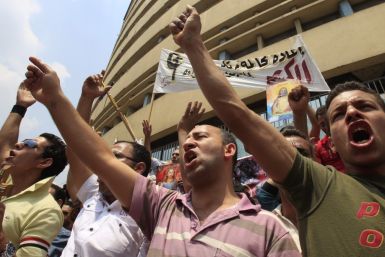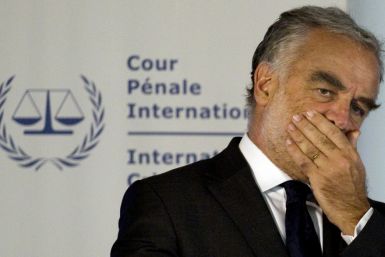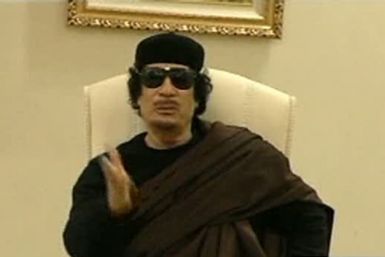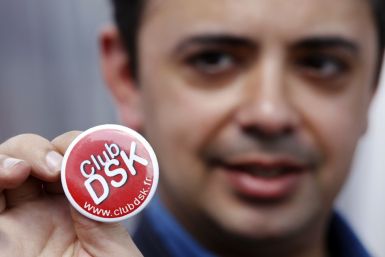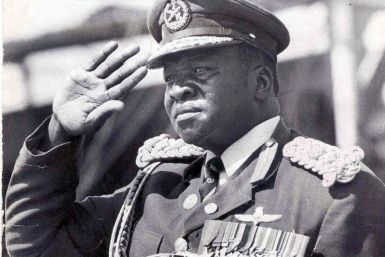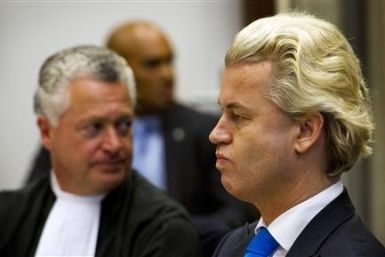In comparison to other regions in the world, the Middle East attracts a relatively large part of US foreign policy time and has often presented it with its most enduring challenges. In the last decades, protecting the US interests within the region has become a complicated tasks as America has had to deal with the rise of Iran as a regional and influential power in the region and its illegal nuclear activities, the toppling of Saddam Hussein and his regime, invade Afghanistan, try to fight...
An online betting website features a long-running table of odds on which cabinet minister will be the next to resign or be sacked. Who will be next to go?
US President Barack Obama yesterday introduced sanctions against Syrian President Bashar Assad and six of his deputies as the regime continued to impose oppressive measures against its own people. The announcement came a day before President Obama is due to make a major policy speech on the recent developments in the Middle East and northern Africa. The sanctions are largely symbolic as Assad has few assets in the US and is unlikely ever to visit the country but come as a reinforcement of pre-ex...
The conflict has gone on for over a hundred years and it is 44 years since the Middle East war of June 1967, over this time there have been many peace plans and many negotiations. If some of these have been successful, including those between Egypt and Israel and Israel and Jordan, a settlement has still not been reached in the core conflict. Looking back at a history of negotiations, the results derived from the different signed treaties are more confusing than encouraging. With the recent appe...
Following conflict that is more than a hundred years old, and 44 years since the Middle East war of June 1967, there have been many peace plans and many negotiations.If some of these have been successful, including those between Egypt and Israel and Israel and Jordan, a settlement has still not been reached in the core conflict. Looking back at a history of negotiations, the results derived from the different signed treaties are more confusing than encouraging.
Rape, while not a pleasant topic for civilised society to talk about, is all over the news this week.
US president Barack Obama has just called Israelis and Palestinians to go back to the negotiating table, but with past peace processes seen as fragile and not very efficient, the several Israeli-Palestinian talks and deals have become renowned for their longevity and chronic inability to find a way to end the conflict.
The end of the world will come on Saturday 21 May, 2011, that is if Harold Camping, leader of an oscure religious sect in the U.S.. Here we take a look at some other predictions which did not quite materialise.
A UK parliament report has questioned whether Osama bin Laden’s death was legal under international law.
IBTimes summarises the report here…
A UK parliament report has questioned whether Osama bin Laden’s death was legal under international law.
Over 100 days in 1994, after the assassination of President Juvenal Habyarimana the 6th April 1994, Rwanda's Hutu majority led by the government carried out the organized slaughter of the country's Tutsi minority and any Hutus who sympathized with them, killing an estimated 800 000 people in the space of three months. In July of the same year, the Rwandan Patriotic Front (RPF) finally managed to gain hold of the country and the killings started to decrease.
Eurozone financial ministers are to continue their talks in Brussels, with discussions now expected to focus mainly on the poor state of the crumbling Greek economy. Greece got a 110bn euro (£94bn) bail-out in 2010, but leaders are now coming to the realisation that this was not enough to fix the county’s economy. Greece however is not the only European country in trouble since on Monday ministers approved a 78bn euro bail-out for Portugal while the IMF has also approved 1.58bn euros in new assi...
The International Criminal Court (ICC) is the first ever permanent, treaty based, international criminal court established to promote the rule of law and ensure that the gravest international crimes do not go unpunished and is complementary to national criminal jurisdictions.It was set up in the wake of genocide in the former Yugoslavia and Rwanda and created in 2002 by the Rome Statute Treaty.While the court is widely understood to be a great international achievement, it has also been cri...
Yesterday the International Criminal Court issued an arrest warrant for the Libyan leader Colonel Gaddafi, raising as they did so an interesting question. Why does the ICC only seem to target African despots?
The sexual assault charges against IMF chief Dominique Strauss-Kahn in New York and his arrest have sent shockwaves across Europe, but how will it impact on the French political scene?
A recent report from the Dow Jones Newswire has indicated the reason for the delaying the PSN relaunch in Japan stems from government intervention.
While the headlines surrounding the Libyan conflict are becoming more and more political with The ICC chief prosecutor Luis Moreno-Ocampo seeking the arrest of Libyan leader Colonel Muammar Gaddafi and two others for crimes against humanity, and Russia and America taking opposite positions over NATO’s strategy, how is the Libyan conflict really evolving, if at all, and will NATO keep its hard-line policies?
Investigators into the crash of Air France flight 447 have said that the downed aircraft's "black box" is intact, despite spending the best part of two years at the bottom of the Atlantic Ocean.
The International Criminal Court chief prosecutor has today announced he is seeking the arrest of Libyan leader Colonel Muammar Gaddafi and two others for crimes against humanity.
Born in Neuilly-sur-Seine, on the 25th of April 1949 he spent part of his childhood in Agadir, Morocco. He was raised by socialist parents and accumulated diplomas from France's most prestigious schools including from Paris' top business and political schools, HEC and Sciences-Po but failed the entrance exam to l'ENA, which grooms France's future presidents. He went on to get a degree in public law and a PHD in economics.
After being arrested on Saturday over allegations of serious sexual assault, Dominique Strauss-Khan has made his first public appearance handcuffed and surrounded by policeman. He was taken to an unknown location while waiting for his hearing to start in a Manhattan court later on today.
Before his death Osama bin Laden indicated that Al-Qaeda should not bother to assassinate U.S. Vice-President Joe Biden as he is not important enough.
One of the "forgotten" former headline stories was the catastrophic flooding in Queensland, Australia. Here is a snippet of what has been happening.
Politicians, not least in the USA and Europe, are espousing greener energy and advocating massive reductions in carbon emissions in the relatively near future, whilst doing little to allay the fears of a generally ill-informed public on a practical means to bring this energy policy about. An obvious practical means but the one most prolific in doomsday scenarios, is the development, expansion and more intensive use of nuclear power.
NATO forces flattened a building inside Muammar Gaddafi's Bab al-Aziziyah compound early on Monday, in what a press official from Gaddafi's government said was an attempt on the Libyan leader's life.
Makwaia wa Kuhenga writing for Tanzania's leading English language newspaper, The Citizen, on Sunday 17 April 2011, tells us he witnessed the Libyan troops of Colonel Qaddafi being mowed down, scores of them being buried and the rest rounded up and returned home. This was during a little known war in October 1978, now almost forgotten in the West, when Colonel Qaddafi gave military support to General Idi Amin of Uganda on his invasion and annexation of the Kagera salient in Tanzania.
Two Afghan soldiers have been killed after a man wearing an Afghan military uniform and a suicide vest started shooting in the Afghan defence ministry.
Vittorio Arrigoni, a 36 year old Italian pro-Palestinian activist, has been found murdered in the Gaza Strip.
The Bahraini government is attempting to close down two opposition Shia groups, as it continues its campaign to bring an end to political unrest.
The trial of Dutch MP Geert Wilders has resumed in Amsterdam. Mr Wilders, who leads the Party for Freedom (PVV) stands accused of inciting hatred against Muslims.










